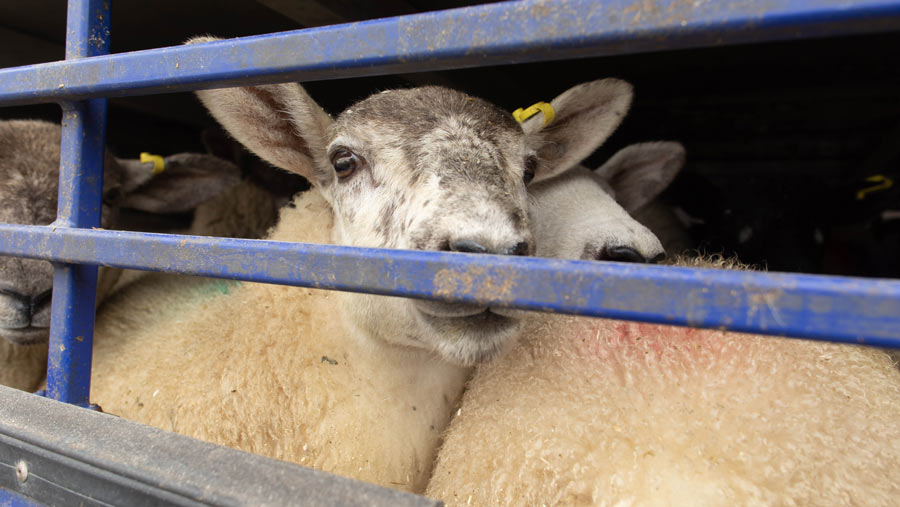New legislation seeks to ban live exports from Britain
 © Tim Scrivener
© Tim Scrivener The UK government has introduced new legislation to ban the export of live farmed animals for fattening and slaughter from Great Britain, prompting a backlash from the farming industry.
The Animal Welfare (Livestock Exports) Bill was introduced in parliament on Monday 4 December, having been announced in the King’s Speech last month.
There is no timetable for the legislation to come into effect and the date of the general election next year could delay its introduction. The bill must pass a series of stages before becoming law.
See also: Analysis: How can the small abattoir sector be saved?
If passed, it will see an outright ban on the export of live animals from Britain, including cattle, sheep, goats, pigs and horses. But Defra says it will not affect Northern Ireland and the Republic of Ireland as they operate an “all-Ireland agri-food economy”.
Defra secretary Steve Barclay says the legislation is necessary to stop animals “enduring unnecessary stress, exhaustion and injury on long journeys”.
The bill will ensure that livestock are slaughtered domestically in “high welfare UK slaughterhouses” which the government says will reinforce the country’s position as “world leader on animal welfare”, while also “boosting the value of British meat and helping to grow the economy”.
However, live exports in other specific circumstances, such as for breeding and competitions, will still be allowed provided animals are transported in line with legal requirements aimed at protecting their welfare.
Mixed reaction
Animal welfare groups, including the RSPCA and Compassion in World Farming, welcomed the introduction of the bill.
But East Sussex-based sheep farmer Frank Langrish branded the legislation as “absolutely illogical”.
He said: “From where we are based in the South East, we can be in the nearest abattoir in Europe within four hours. Plus, farm animals need to be checked by a vet before they are exported.
“There are so few abattoirs left in the UK now that many animals already face a journey in excess of four hours to abattoirs in the Midlands or five or six hours to West Wales.”
Important trade
The NFU said export in high value animals for further rearing and fattening remains an important trade. But the UK has not exported live animals for slaughter for a number of years as it now processes in the UK and exports products of animal origin (POAO) or whole and part carcasses.
NFU chief livestock adviser John Royle said the government must match its ambitions to be a “global leader in animal welfare” by ensuring UK livestock farmers are “not undercut in trade deals that do not meet the same high standards adhered to here.”
The Farmers’ Union of Wales has warned that introducing a legislative ban on live exports has the potential of creating an oversupply in UK markets, resulting in lower demand and therefore reducing prices farmers receive for their stock.
National Sheep Association chief executive Phil Stocker said there is “very strong demand” for breeding stock in Europe, but the failure to establish border control posts on either side of the Channel is costing the industry millions.
He added: “We have been working to push Defra to try and establish some BCPs to get the route up and running again. One or two ideas are being discussed, but there is no immediate solution.”
